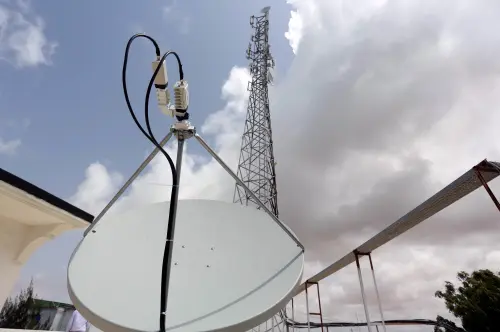This viewpoint is part of Foresight Africa 2024.
The future will depend on harnessing the resources and talents of the African continent at home and abroad while supporting philanthropy and collaborative approaches.
The growing recognition of African talent, creativity, and resources has led to a renewed focus on the evolving landscape of African philanthropy at home and abroad.
For the last two decades, the role of African philanthropists in driving change on the continent has gained attention. Moreover, the growth of digital platforms has given visibility to informal philanthropy and mutual aid networks.1 African funders and philanthropists include Afrobeats musician Wiz Kid as well as the Mo Ibrahim Foundation, the Tony Elumelu Foundation and the Higher Life Foundation, among others. Studies have also documented the importance of indigenous African organizations working on education, climate change, gender equity, health, and other causes.2
The recent 2023 Global Philanthropy Tracker (GPT) examines formal philanthropic outflows of 47 countries around the globe and shows how African philanthropic flows can be harnessed within the larger context of remittances, official development assistance, and private capital investment.3 Five African countries: Kenya, Nigeria, South Africa, Tanzania, and Uganda—tracked USD 38 million in philanthropic outflows. These countries dispersed nearly USD 7 billion in remittances, highlighting that remittances and diaspora populations play a vital role in cross-border financial flows.
The data from the GPT suggests an alternative narrative on Africa that departs from division, strife, and scarcity. Instead, philanthropy offers a hopeful vision of Africa’s future that builds on its talents and resources. Africa’s most significant resource is its human capital, which includes the African diaspora living outside the continent.
One critical question is how to maximize the power of philanthropy for Africa’s development. What strategies can policymakers employ to support African philanthropists at home and abroad?
The “2022 Global Philanthropy Environment Index: Africa Edition” explores how the climate for philanthropy is evolving in 13 African countries across six factors. Only six of the 13 countries had an overall favorable environment for philanthropy: Ethiopia, Ghana, Kenya, Morocco, Senegal, and South Africa.4 For philanthropy to continue to grow, governments and civil society leaders must support policies that build on the strengths of Africa’s traditions of generosity. These policies may include:
- Supporting tax incentives, matching grants, and other joint initiatives that can serve as catalysts for African donors;
- Reducing barriers to cross-border flows, as less restrictive regulations combined with more stable economic conditions can spur diaspora engagement;
- Finally, encouraging the growth of an innovative philanthropic ecosystem is also vital. New approaches to philanthropy, such as crowdfunding, mobile giving, impact investing, and venture philanthropy are unique opportunities to engage the African diaspora.
The future will depend on harnessing the resources and talents of the African continent at home and abroad while supporting philanthropy and collaborative approaches.
-
Footnotes
- Indiana University: Lilly Family School of Philanthropy. 2023. “Digital for Good: A Global Study on Emerging Ways of Giving.” https://globalindices.iupui.edu/additional-research/digital-for-good/index.html.
- Moyo, Bhekinkosi, Mzukisi Qobo, and Nomfundo Ngwenya. 2023. “African Philanthropy: Philanthropic Responses to Covid-19 and Development Goals in Africa.”
- Indiana University: Lilly Family School of Philanthropy. 2023. Global Philanthropy Tracker. https://globalindices.iupui. edu/tracker/index.html.
- Indiana University Lilly Family School of Philanthropy. 2023. 2022 Global Philanthropy Environment Index: Africa Edition. https://scholarworks.iupui.edu/server/api/core/bitstreams/9274b917-2684-474f-b5b7-09aea49fd98c/content.
The Brookings Institution is committed to quality, independence, and impact.
We are supported by a diverse array of funders. In line with our values and policies, each Brookings publication represents the sole views of its author(s).









Commentary
Enabling African philanthropy
September 6, 2024